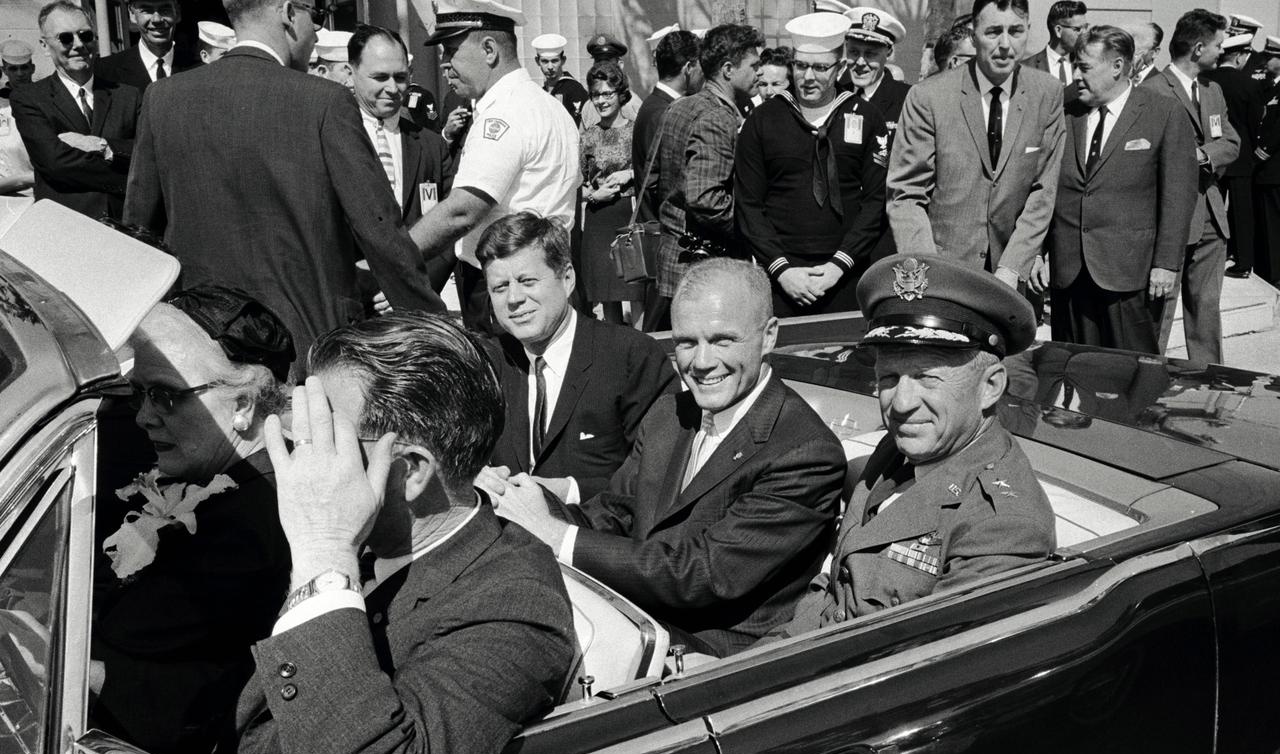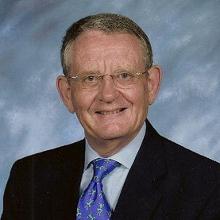The Ascent of an American Hero
(Inside Science) -- Sixty years ago this Sunday, on Feb. 20, 1962, American astronaut John Glenn took off from Cape Canaveral on Florida's eastern coast on a mission that marked a turning point in the space race between the United States and the Soviet Union.
During the four hours and 55 minutes between launch and splashdown, Glenn orbited the Earth three times. His achievement accelerated the U.S.'s push to put the first person on the moon before the end of the decade. And it made Glenn a national hero, setting the stage for a political career.
Glenn earned his legend status the hard way. His flight, dubbed Friendship 7, initially encountered a series of delays that postponed its original launch date of Jan. 16. Once in orbit, a thruster caused directional control problems. Minor issues with the craft's automatic control system forced Glenn to take care of the problem by flying the craft himself for its last two orbits.
But the most serious issue occurred when a sensor alerted Mission Control to the possibility that the heat shield that would protect Glenn and the contents of the craft from incineration by the heat of reentry through the atmosphere would detach from the spacecraft. For several minutes, Mission Control and Glenn faced the prospect of disaster.
But the alert proved to be a false alarm, and Glenn splashed down safely in the Atlantic Ocean.
In actuality, his flight was neither exceptional nor record-breaking.
Glenn was in fact the third person to orbit the Earth. Soviet cosmonaut Yuri Gagarin had become the first human to achieve that goal on April 12, 1961. Then on Aug. 6 of the same year, fellow Russian Gherman Titov orbited the Earth an extraordinary 17 times.
Glenn wasn't even the first American in space. Fellow astronauts Alan Shepard and Gus Grissom had taken short suborbital flights on May 5 and July 21, 1961.
Nevertheless, the public greeted Glenn as a new American hero and gave him a ticker tape parade in New York City on March 1, 1962.
"There was a great sigh of relief among the American public that we had a man in orbit," recalled John Logsdon, professor emeritus in George Washington University's Space Policy Institute. On May 25, 1961, former President John F. Kennedy had announced the U.S.'s plan to go to the moon by the end of the decade. The public reaction to Glenn's flight reinforced that decision, Logsdon said.
That Glenn had become the first American to orbit the Earth was somewhat surprising. The oldest of the original seven astronaut corps, known as the Mercury 7 for the name of the program, Glenn had expected to pilot the program's first suborbital flight. That he was chosen for the third flight reflected his strained relationship with his six colleagues.
Like them, Glenn was a distinguished military pilot. He had flown multiple missions in World War II and the Korean War. He had also set a transcontinental record by flying from California to New York at an average speed above the supersonic level. But Glenn's personality differed from those of his fellow astronauts.
The difference first emerged publicly on April 9, 1959, at NASA's introductory press conference for the Mercury astronauts.
The first question concerned the reactions of the astronauts' loved ones to their selection. Most gave anodyne responses about their families' enthusiasm for the project. But Glenn, who had previously appeared on the television show "Name That Tune," read the room far better.
"I don't think any of us could really go on with something like this if we didn't have really good backing at home, really," he said.
An active Presbyterian, he also talked about his faith in God and country. "I got on the project because it will probably be the closest to heaven I'll ever get," he joked.
"The reporters lapped it up while the other six astronauts gaped," British science writer Stephen Walker reported in his book "Beyond," about Yuri Gagarin's first flight into space.
Those comments revealed a rift between the straightlaced Glenn and his more raucous colleagues over personal behavior. "While Glenn was devoted to [his wife] Annie, some astronauts' marriages were less solid and the men were wont to stray," wrote Canadian science writer Amy Shira Teitel in a biography of Glenn.
"He lectured his colleagues on their behavior," Logsdon said. "He had a little bit of a holier-than-thou attitude."
That attitude backfired on Glenn in January 1961, when Robert Gilruth, who oversaw NASA's crewed flight program, asked each Mercury astronaut to nominate the colleague he believed should take the first suborbital flight. Shepard, who had an often-difficult relationship with Glenn, won the vote and the flight.
Ironically, Glenn's relegation to third place in the flight order made him more famous than he would have been if he'd flown first. Today, Shepard is probably remembered more for using a jury-rigged club to hit a golf ball on the moon during the Apollo 14 mission than piloting America's first venture into space. Glenn's is the name that comes to mind in terms of the early days of spaceflight -- as he would have wanted.
"He was very conscious of the image he presented to the public" during the Mercury days, Logsdon said. "He was already pretty ambitious about what would come after the flight."
What came was service as a Democratic senator from Ohio. During four six-year terms, he became an expert on security issues such as nuclear weapons policy. "He decided he didn't want to be the astronaut senator," Logsdon noted. "He didn't seek out assignments connected with the space program. But when he was talking about space on the Senate floor and other environments, people deferred to him."
But Glenn's career as an astronaut wasn't over yet. On Oct. 29, 1998, shortly before he left the Senate, he orbited the Earth 134 times during a nine-day flight on the space shuttle Discovery. That exploit garnered him another record: At the age of 77, he became the oldest astronaut in space.
Editor's note (2/18/22): A previous version of this article stated that the Friendship 7 flight took off on Feb. 22, 1962. The flight took off on Feb. 20, 1962.


